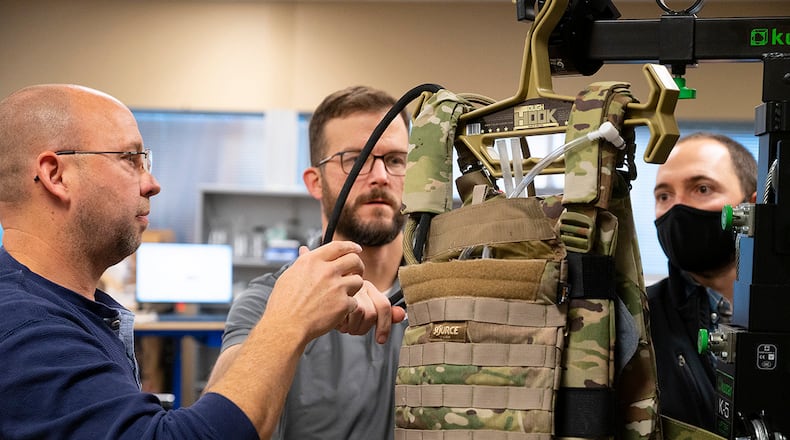Established in 2002 through a partnership that included the Dayton Development Coalition, the University of Dayton, and Wright State University, the institute was created to help the Air Force solve technical problems and speed innovation.
“WBI was established to help the Air Force Research Laboratory connect with innovators outside its traditional contractor base and to strengthen the region’s reputation for being an innovation powerhouse,” John Leland, WBI board chair and a member of the original planning committee, said in a release.
Vince Russo, a longtime WBI board chair and former executive director of the Air Force Aeronautical Systems Center, said the institute over its two decades “demonstrated many novel ways to spark collaboration and innovation across the public and private sectors. Its approaches have now been adopted and expanded by other organizations, which continue to carry forward WBI’s spirit of disruptive innovation on a global scale.”
A statement released Friday said the organization has tackled hundreds of projects, delivered “just-in-time” warfighter capabilities to Air Force members and won recognition from the Harvard Business Review and academic institutions.
The organization was also an early player in what became downtown Dayton’s fast-growing “innovation district.”
A partnership between the Air Force Research Laboratory and the institute took on an early lease at 444 E. Second St. in Dayton to rent 8,000 square feet in that building’s first floor, helping spark a wave of interest in that part of downtown in 2017.
“Over the past year, the WBI board engaged with Air Force leaders and community stakeholders to chart the organization’s next chapter,” a statement from the institute said. “With WBI’s original mission accomplished and many of its methods now embedded in the region’s innovation ecosystem, the board decided to suspend operations and revisit the corporation’s future in early 2026.”
“We are proud of what WBI accomplished on behalf of AFRL (the Air Force Research Laboratory) and the Dayton region,” said Jeff Hoagland, president and chief executive of the coalition. “The collaborative innovation practices WBI pioneered strengthened AFRL as well as regional defense contractors. While we no longer see a need for a separate organization to carry out these initiatives, we may keep the WBI corporation in reserve for future opportunities — the name carries respect and power.”
A lot has changed since the institute’s formation in 2002, Hoagland said in an interview. The move does not signal any kind of pulling back from the community by the AFRL or the base, he said. He attributed the move simply to “evolution over time.”
“A lot of what they (the institute) were doing for AFRL, AFRL is now doing by itself,” he said. “... There was a need, and that need is no longer needed because it’s being taken care of organically.”
In the institute’s Internal Revenue Service 990 form for the year 2023, the organization reported gross receipts of nearly $18.3 million, with total functional expenses of less than $18.2 million.
About the Author


